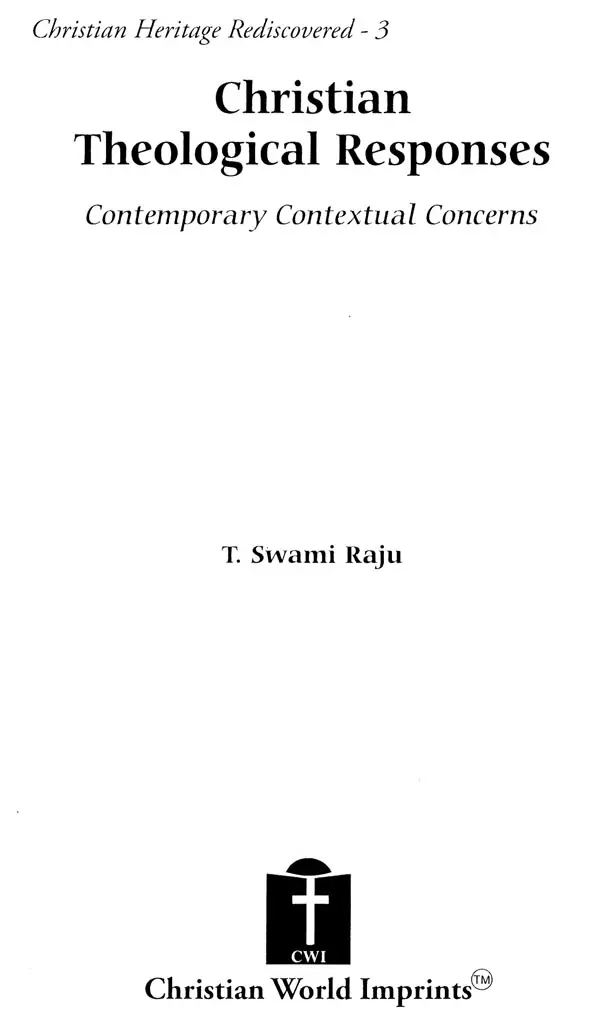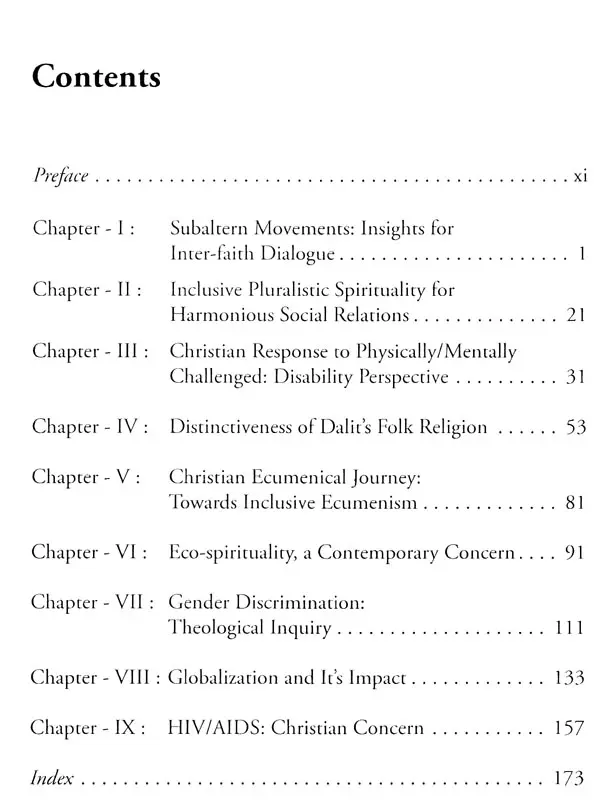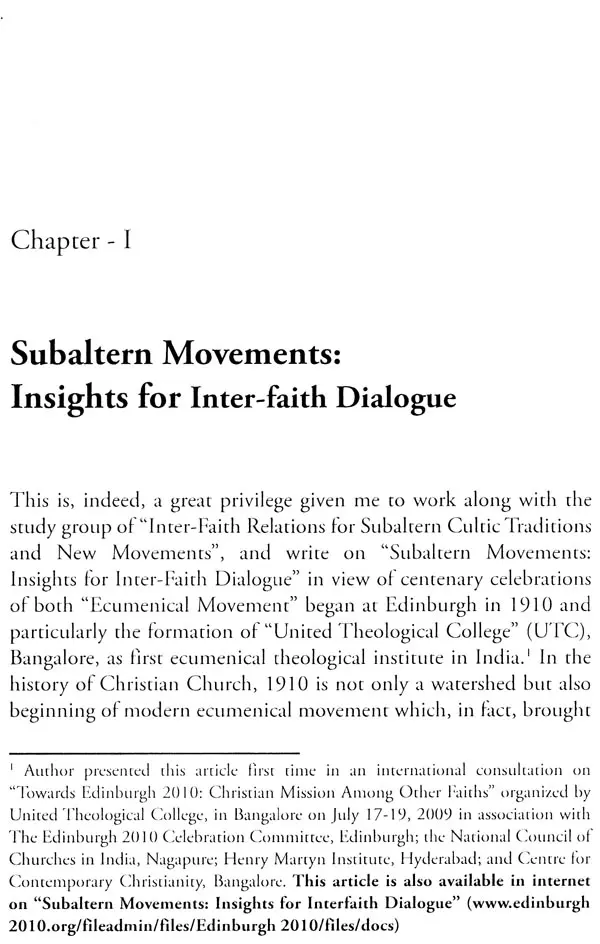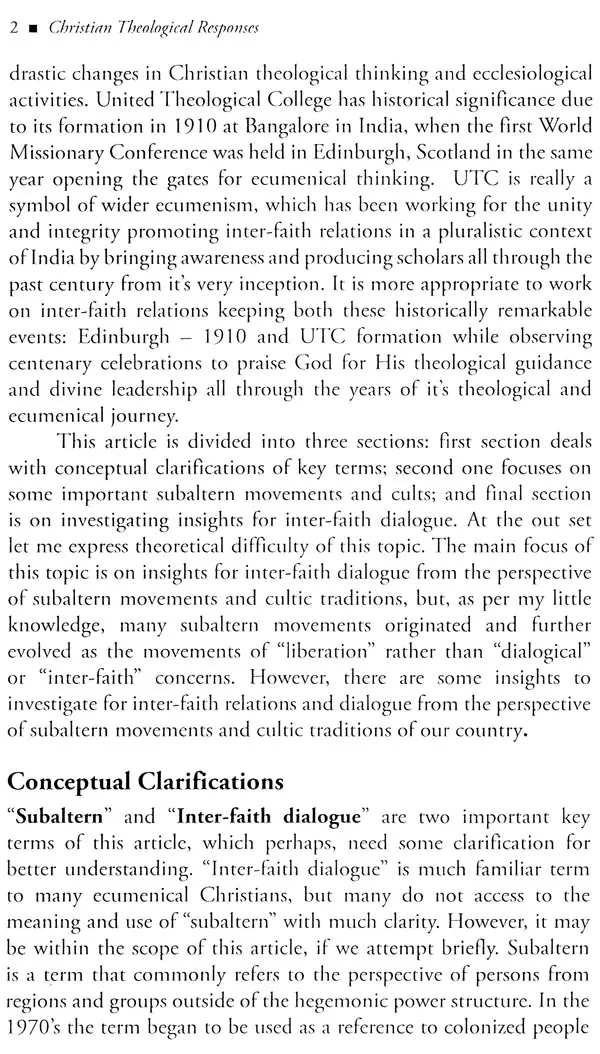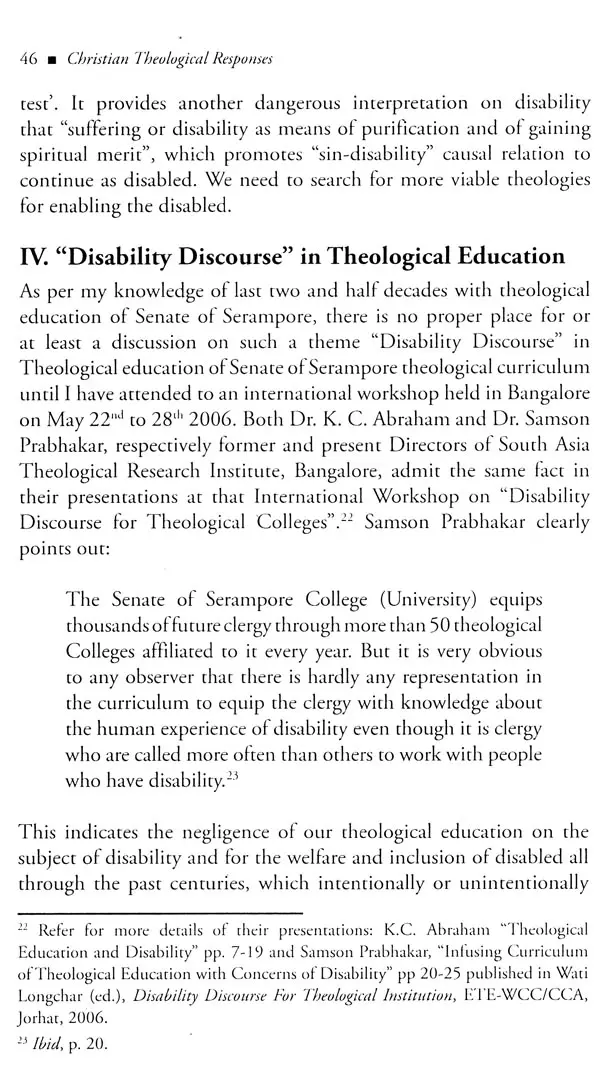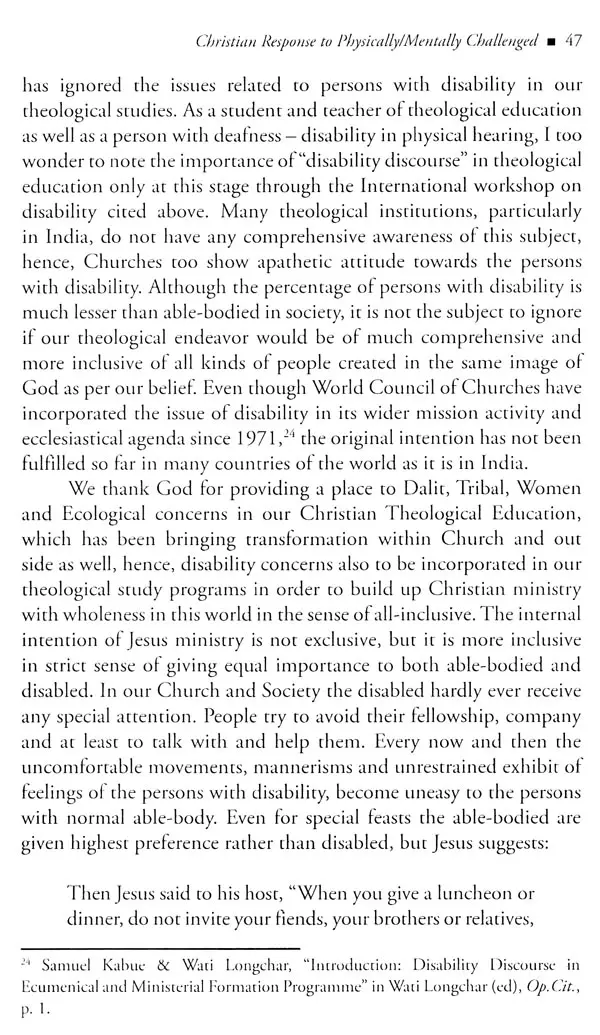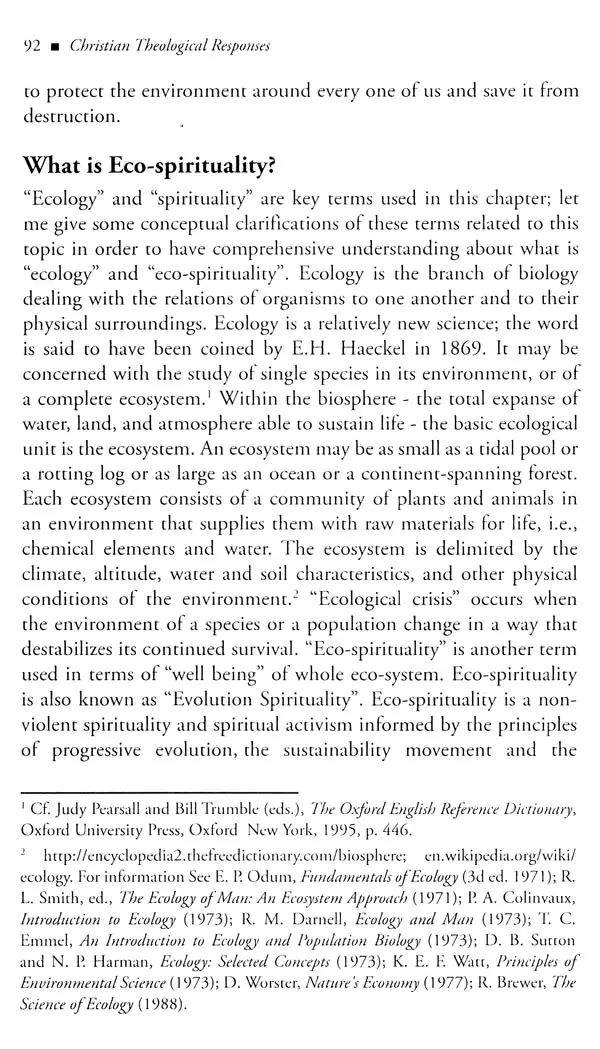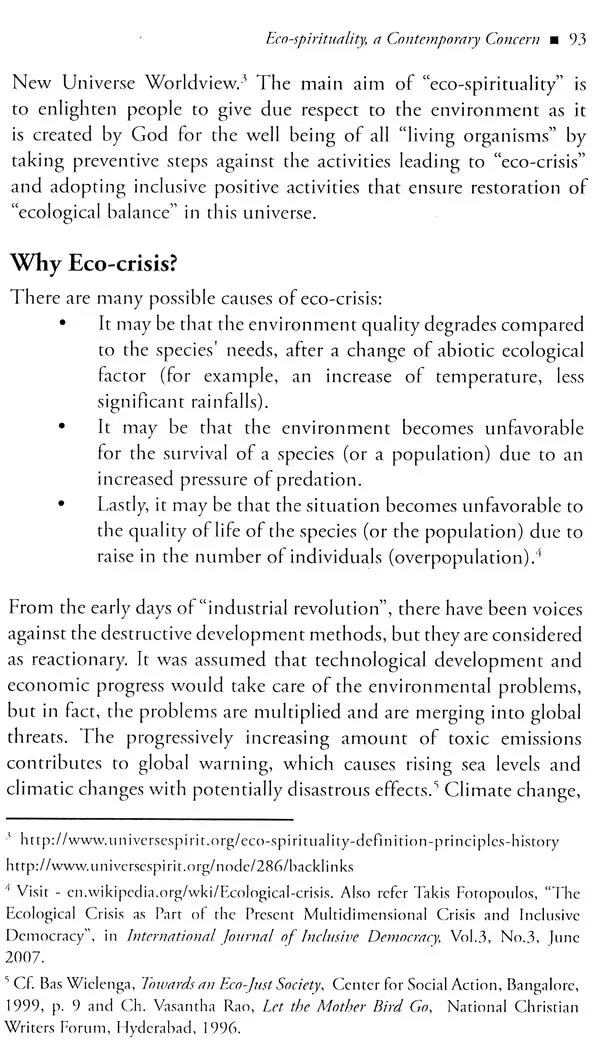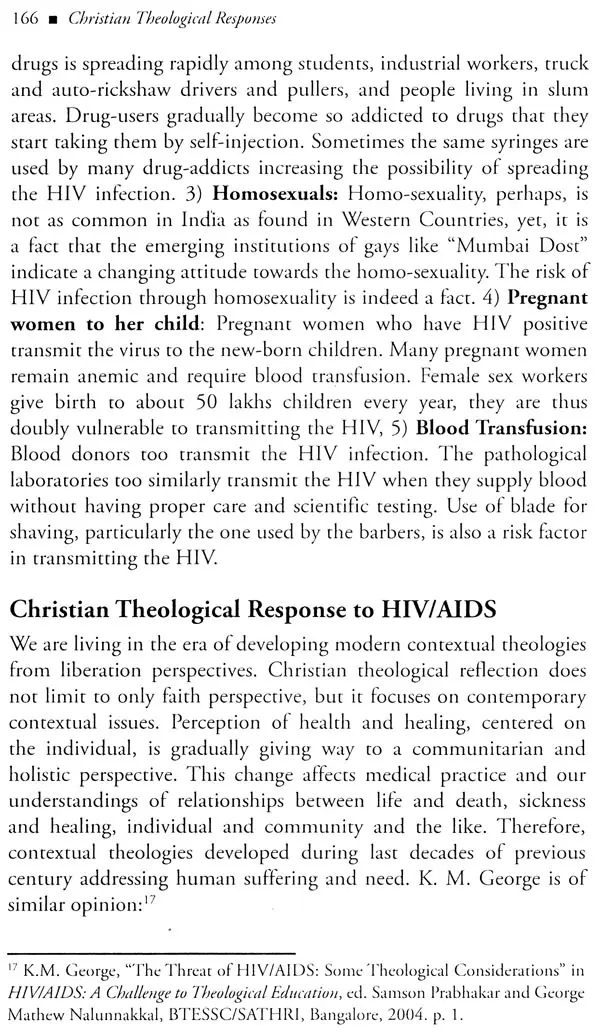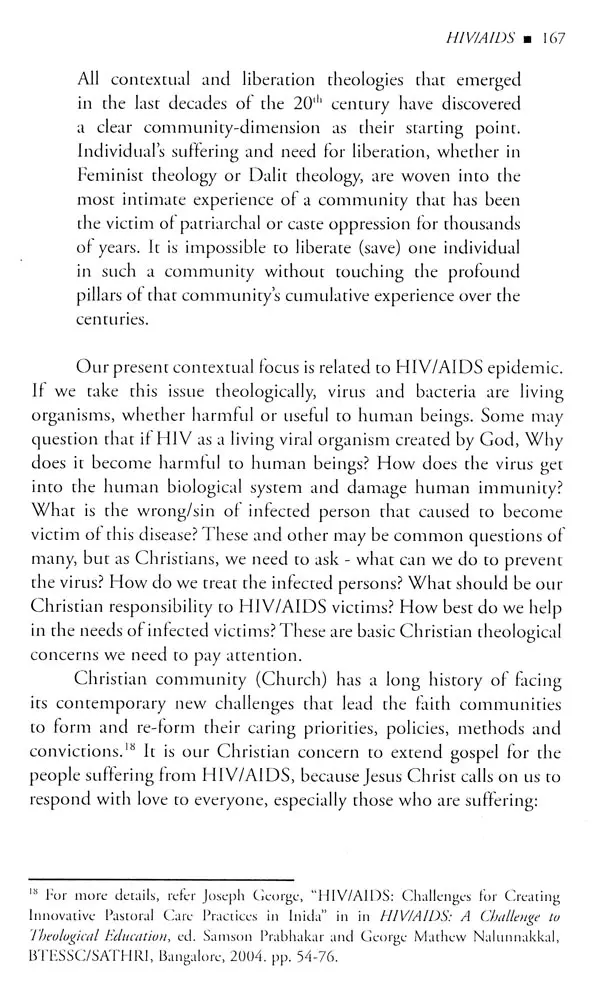About the Book The Book provides a systematic study to understand social issues from a Christian point of view. It showcases various social concerns vis-à-vis Christian responsibilities towards them so as to prepare people to face the new challenges.
To elaborate, the presentation offers research papers and articles in relation to 'Subaltern Movements' and 'Uniqueness of Dalits Folk Religion', among others. It also exhibits pluralistic context of India and suggest ways & means of Christian inclusive pluralistic spirituality so as to promote harmonious social relations. Also, an important aspect of human life, 'disability' or being differently able -- physically or mentally--has been focused, which perhaps either has been ignored or neglected so far; but Author feels that it is required as a part of theological exercises in developing "an enabling theology for disability". The focal point of Christian ecclesiological concerns since 1910, i.e., 'Ecumenism' has also been covered. The Author attempts to seek ways for more "inclusive ecumenism" by shifting the goal from 'unity among Christians' to 'unity of all human beings' irrespective of their religion, faith, sect, denomination and caste. One of the major social concerns of 'Gender Discrimination' has also been highlighted. Author also puts in an analytical attempt to understand the impact of 'Globalization' on world's economic, social, and cultural life. In addition, the Book provides an in depth detail of issues that are causing ecological & environmental crisis; ethical & medical crisis in the form of 'HIV/AIDS'.
Thus, it fulfills the concern of Christian community by understanding the contemporary contextual issues and help building a healthier society. The Author attempts simultaneously to provide it as a text-book to theological trainees from multi-disciplinary perspective.
About the Author Born on October 10th 1959, Prof. T. Swami Raju completed his B.Sc., at Nagaram, Post Graduation in English from Andhra University and in Philosophy from Osmania University. He received Theological degrees from Senate of Serampore University: B.D. from ACTC, Hyderabad; M.Th (Religions) from Gurukul, Chennai; and D.Th. (Religions) from SATHRI, Bangalore. Ordained in 1987 from the Andhra Evangelical Lutheran Church, he was involved in the Pastoral ministry for five years in Lutheran Church at Srisailam Project Colony. Having married to Susanna Bhanumathi in 1979, they are blessed with five children. Since 1993 he has been teaching in the Department of Religion and Society at Andhra Christian Theological College, Hyderabad. He has published widely in English & Telugu; English ones being - The Study of Religion: Methods and Perspectives (2004), Vira Cult in Folk Religion of Guntur District: A Dalit Perspective (2005), Christian Responses to Plurality of Religion (2006), Chennakesava Cult and Dalits (2010), & My Lord and 1: A Living Testimony (2012).
Foreword In life, value determines the worth of anything or any endeavour. To attach value to someone, an object, situation or even a matter implies the worth or esteem placed on it, and this varies depending on different parameters for judgment or consideration at any given time. However, value is intrinsic and subjective; in other words, what is of value to an individual may virtually be worthless to another individual. This again explains why human beings differ from one place to the other on matters like money and possessions, religions and faith, politics and governance and other issues like marriage and divorce, beauty and love, and all such other considerations common to a man. Life has been so ordered to emphasize that value determines judgement, i.e., your assessment and decisions on critical and non-essential matters are very much based on your value systems. You tend to place value on issues like sustenance, faith, health, relationships, divinity, etc., that are critical to your existence as a person not only on the physical, material plane, but even more so on the spiritual and esoteric levels.
Preface We are living in a post modern age and our contemporary society has been facing many challenges. No society ever remains invariable, hence, social change is a common fact indeed. The velocity of this change varies over time. At times social changes have been rapid, more so in the present era. Social issues are as old as human civilization, but a systematic study is needed to understand contemporary contextual social issues in order to reflect relevantly and bring awareness among people. It is our Christian responsibility to reflect theologically on contemporary contextual concerns and prepare people to face the new challenges. There are several problems in Indian society as well as in world society, for example, subaltern struggles, inter-faith/ religious conflicts, disability/differently able concerns, dalit's issues, disunity among Christians, ecological crisis/environmental changes, gender discrimination, globalization, HIV/AIDS, corruption and so on.
**Contents and Sample Pages**
